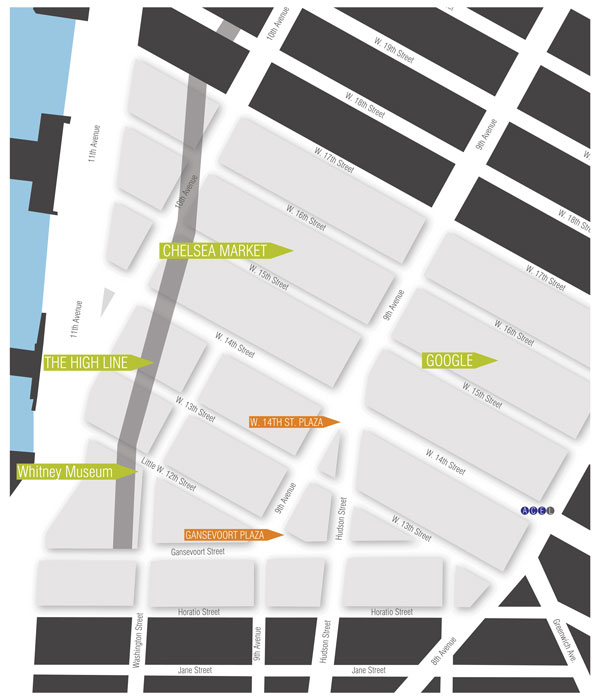Cheers for CCBA’s coordinated effort
To The Editor:
Re “Improving Conditions, Through Combined Block Power” (news, March 12):
Great article about how community organizations can work with elected officials, businesses and others to improve things. Thanks to Bill Borock and the CCBA for all of their efforts on behalf of Chelsea residents.
Phyllis Waisman
Where the beef was
To The Editor:
Re “Google Wants Cut of Meatpacking BID as Residents Stew” (news, Feb. 26):
Meat Market activities used to extend up Ninth Avenue to 15th Street. There was a chicken wholesaler next door to what is now the Porter House, and the Wells Fargo bank space used to be a taxi company — not meat-related, but the kind of business that operates in not-so-fancy neighborhoods.
On the ground floor of what is now the Apple Store, there used to be a fish wholesaler and a food counter that catered very much to the meatpackers. So did Nick’s Diner, on the corner of 14th and Ninth.
I live on 15th Street between Eighth and Ninth Avenues, and I tell people I live in the Meatpacking District.
Jim Jasper
A way to fund pre-K
To The Editor:
The governor and the mayor may be able to compromise on pre-K funding by granting the city limited taxing authority to cover only any verified funding deficit not covered by state funds. A budgetary mechanism for financing along these lines might be difficult to achieve, but the goal of universal full-day pre-K is worth the effort.
Jules Kohn
Post office of the future?
To The Editor:
Our post offices play a vital role for people who cannot afford private mail options. Many depend on them for their contact with the outside. They are community resources.
The Office of the Inspector General (OIG) proposed a way to keep this vital function while offering much-needed services, especially to financially strapped customers. Senator Warren has concurred.
The statistics are outrageous:
More than a quarter of all U.S. households (roughly 68 million Americans) spent about $89 billion in 2012 on interest and fees for non-bank financial services (payday loans, check-cashing, etc.), an average of $2,412 per household.
Poor Americans spend roughly 10 percent of their income on basic banking services. Many banks offered, in essence, payday loans, with annual interest rates of more than 300 percent.
Under the OIG plan, in addition to selling stamps and processing mail, the post office would offer prepaid cards, allowing users to pay bills online and withdraw money at ATMs, as well as perform check-cashing, small international money transfers, small loans and bill paying. The post office would also develop services to let customers save and borrow money.
But banks object. They make money off low-income Americans. The median overdraft charge is $34 at large banks and $30 at smaller financial institutions. Banks made an estimated $32 billion in overdraft fees in 2012.
Other countries have done this, and OIG says that if even 10 percent of what underserved Americans pay on bank interest and fees went to the U.S. Postal Service, it would generate $8.9 billion in new revenue per year.
K Webster
E-mail letters, not longer than 250 words in length, to scott@chelseanow.com or fax to 212-229-2790 or mail to Chelsea Now, Letters to the Editor, 515 Canal St., Suite 1C, NY, NY 10013. Please include phone number for confirmation purposes. Chelsea Now reserves the right to edit letters for space, grammar, clarity and libel. Chelsea Now does not publish anonymous letters.




































